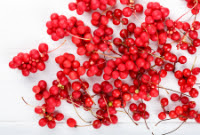
Lower stress, higher self-confidence, and enhanced social relationships – sounds like the health benefits of exercise, right? Surprise! Those benefits also come from volunteering. Whether you’re working at a food shelter, giving time as a literacy mentor, or helping out after a natural disaster, the many ways of doing good for others is also good for your health.
In general, people volunteer because they believe helping those who are having a harder time in life can actually make a difference. That alone makes those who volunteer feel good about themselves, about others, and about their community. But there’s much more to it; research shows that the “happiness effect” of volunteering enhances social, emotional, and physical aspects of health and that these benefits increase as we age.
Social Benefits
- Strengthens community ties
- Builds in-person social networks to create genuine friendships
- Reduces feelings of loneliness
- Enhances professional networks and job opportunities
Emotional Benefits
- Strengthens emotional stability for those with and without mental health concerns, such as depression, anxiety, and PTSD
- Improves self-esteem
- Contributes to a sense of purpose
Physical Benefits
- Lowers stress and tension
- Enhances brain function
- Reduces risk of Alzheimer’s Disease
- Promotes being physically active
People who volunteer tend to take better care of themselves; they typically have lower rates of heart disease, depression and anxiety. These health benefits don’t just apply to adults. They apply to kids and teens as well. As noted earlier, the benefits continue as we age and become even more pronounced for older adult volunteers.
So, find a cause (or two) that is meaningful for you, involve the whole family in volunteering, and celebrate all that it does for others and for you!
References
Contact our office for more information
Journey of Health Medical Clinic
619-772-1164
 With its sweet, sour, salty, pungent, and bitter flavor profile, it’s no surprise the Chinese call Schisandra chinensis “the five flavored fruit,” or wu wei zi. Regarded as the most important herb in Traditional Chinese Medicine, the schisandra berry might more aptly be called the “fruit of life.”
With its sweet, sour, salty, pungent, and bitter flavor profile, it’s no surprise the Chinese call Schisandra chinensis “the five flavored fruit,” or wu wei zi. Regarded as the most important herb in Traditional Chinese Medicine, the schisandra berry might more aptly be called the “fruit of life.”

